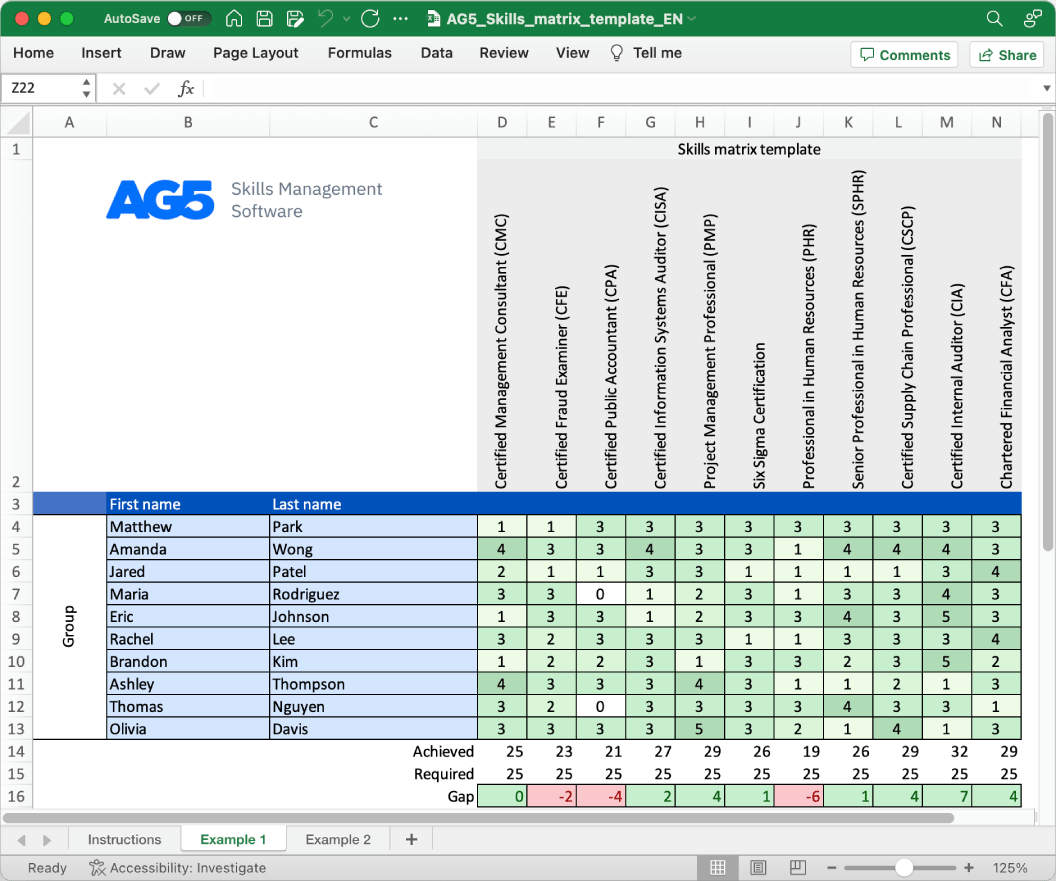Investigation skills matrix template
A skills matrix template is a tool teams can use to assess their investigation skills and knowledge
Download your free template here

Overview Copied
With our free investigation skills matrix template, you will receive a clear overview of the skills that are present in your organization when conducting investigations as well as those that are missing. The template is designed to assess the capabilities and proficiency of frontline workers in conducting investigations within various industries. The template ensures that your team is are equipped with the necessary skills to effectively identify, analyze, and resolve issues that may arise in the workplace.
The template ensures that workers are equipped with the necessary skills to effectively identify, analyze, and resolve issues that may arise in the workplace. By starting in AG5 you can also see our standard rating scales as well as add additional comments when assessing users on their proficiency.
Root cause analysis
- Identifying root causes
- Data collection techniques
- Analyzing process deviations
- Conducting interviews
- Utilizing root cause analysis tools (fishbone diagram, 5 whys)
Incident investigation
- Incident reporting procedures
- On-site investigation protocols
- Evidence gathering and preservation
- Writing investigation reports
- Ensuring compliance with incident reporting regulations (e.g., OSHA, EPA)
Regulatory compliance
- Understanding industry-specific regulations (e.g., HIPAA, FDA, OSHA)
- Conducting compliance audits and identifying gaps
- Ensuring investigations meet regulatory standards and requirements
- Documenting compliance findings
- Implementing corrective actions
- Continuous monitoring, and improvement
Data Collection and Analysis
- Collecting quantitative and qualitative data for investigations
- Using statistical analysis tools to identify trends and anomalies
- Presenting investigation data in clear, understandable formats
- Analyzing patterns in incidents to predict potential future risks
- Ensuring data integrity and security during investigations
Benefits Copied
Skills management software is important in investigation as it assists in tracking the expertise and experience of investigators, enabling efficient allocation of resources, effective evidence collection, and thorough investigations to uncover root causes and address issues appropriately.
Author Copied
Revisions Copied
Written by: Wais
Copy edited by: Jago Gazendam
Tired of managing skills in Excel?
Say goodbye to Excel matrices. Start using AG5’s plug and play skill matrix software.
Recognized by G2 for Excellence in Skills Management

